When we talk about the golden era of Indian cinema, one name shines brighter than the rest: Dilip Kumar. Known as the Tragedy King of Bollywood, he wasn’t just an actor; he was an emotion, a school of acting in himself. With his calm yet powerful presence, he brought realism to Indian films when exaggerated expressions were the norm.
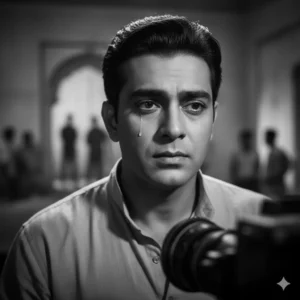
From his early struggles in pre-independence India to becoming a symbol of cinematic excellence, Dilip Kumar’s journey is not just about fame, it’s about patience, dedication, and grace.
Early Life and Family Background
Dilip Kumar was born as Mohammad Yusuf Khan on 11 December 1922 in Peshawar, now in Pakistan. His father, Lala Ghulam Sarwar Ali Khan, was a fruit merchant, and his mother, Ayesha Begum, was a homemaker.
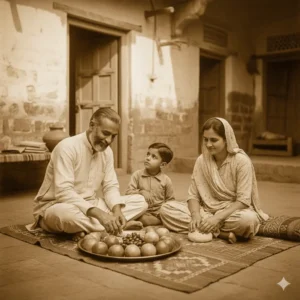
During his childhood, his family moved to Bombay (now Mumbai), where he studied at Anjuman Islam School. Life wasn’t easy, but young Yusuf was determined to make something of himself. Before entering films, he even worked at a canteen in Pune to support his family.
His journey from a small-town boy to the face of Indian cinema is truly inspiring.
How Dilip Kumar Entered Films
Fate had big plans for him. In 1943, Devika Rani, the owner of Bombay Talkies, discovered Yusuf Khan and suggested he change his name to Dilip Kumar—a name that would soon become immortal in Indian cinema.
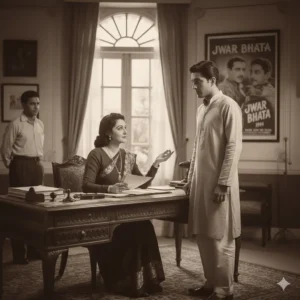
His debut film was “Jwar Bhata” (1944), which didn’t do well at the box office. But Dilip Kumar didn’t lose hope. He continued to learn, observe, and improve. Within a few years, he transformed himself into one of the most natural and versatile actors of his time.
Rise to Stardom
The turning point came with “Jugnu” (1947), followed by “Shaheed” (1948) and “Andaz” (1949), co-starring Raj Kapoor and Nargis. The films’ success made him a household name.
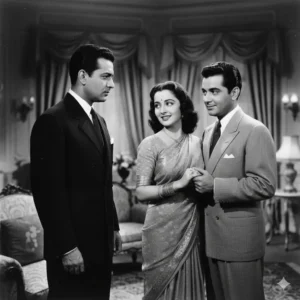
During the 1950s and 60s, Dilip Kumar gave Indian cinema some of its most memorable performances. Films like “Devdas” (1955), “Mughal-e-Azam” (1960), “Naya Daur” (1957), “Madhumati” (1958), and “Ganga Jamuna” (1961) showcased his unmatched acting depth.
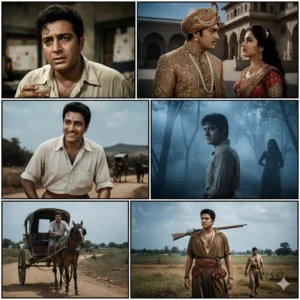
He was known for his subtle emotions, expressive eyes, and realistic dialogue delivery. While others acted, Dilip Kumar lived every role he played.
The ‘Tragedy King’ of Indian Cinema
His intense performances in films like Devdas and Madhumati earned him the title of the Tragedy King. Audiences often felt his pain as if it were real. His ability to express sorrow and emotion without overacting set new benchmarks for Indian acting.
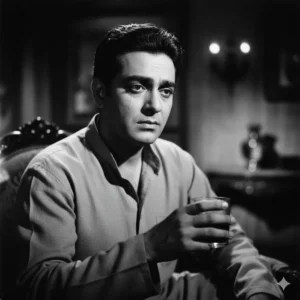
But what many don’t know is that these emotional roles affected him personally. He once took a break from such tragic characters and acted in light-hearted films like “Kohinoor” (1960) to maintain his emotional balance.
Awards and Achievements
Dilip Kumar’s contribution to Indian cinema was unparalleled. He received countless awards and honors, including:
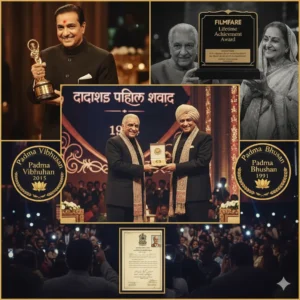
-
8 Filmfare Awards for Best Actor (a record at that time)
-
Filmfare Lifetime Achievement Award
-
Padma Bhushan in 1991
-
Dadasaheb Phalke Award in 1994
-
Padma Vibhushan in 2015
-
Nishan-e-Imtiaz, Pakistan’s highest civilian award
He was also listed in the Guinness World Records for winning the maximum number of Best Actor awards.
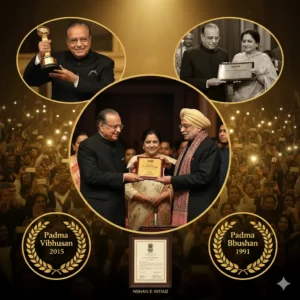
His professionalism, discipline, and humility inspired generations of actors like Amitabh Bachchan, Shah Rukh Khan, and Aamir Khan.
Personal Life: A Love That Became Legendary
Dilip Kumar’s personal life was as fascinating as his films. He married the elegant actress Saira Banu in 1966, who was 22 years younger than him. Their marriage was an example of true love and companionship that lasted for over five decades.
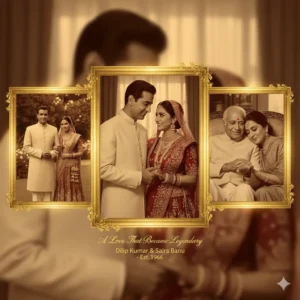
Saira Banu once said, “For me, Dilip Sahib is the world.” Even during his later years, she stood by him through illness and challenges, showing what lifelong love truly means.
His Later Years and Return to Films
After taking a break from films, Dilip Kumar returned to the screen in the 1980s with powerful roles in “Kranti” (1981), “Shakti” (1982), and “Saudagar” (1991).
In Shakti, his performance alongside Amitabh Bachchan is still remembered as one of the greatest father-son portrayals in Indian cinema.
His final film was “Qila” (1998), marking the end of an extraordinary acting journey that spanned over five decades.
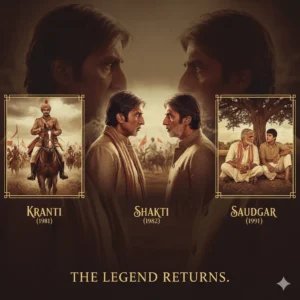
The Man Behind the Legend
Despite his fame, Dilip Kumar was known for his simplicity and humility. He was fluent in Urdu, Hindi, English, and Pashto—and his deep, poetic way of speaking reflected his cultured personality.
He was also active in social causes and often used his influence to promote peace between India and Pakistan. Many world leaders, politicians, and actors admired him not just as an artist but as a gentleman.
His Passing and Everlasting Legacy
On 7 July 2021, Dilip Kumar passed away at the age of 98. His death marked the end of an era, but his art, grace, and values continue to live in the hearts of millions.
Today, every actor who values craft over glamour considers him an idol. His films are studied in film schools, his dialogues are remembered, and his expressions remain unmatched.
Conclusion: A Legend Forever
Dilip Kumar wasn’t just a superstar; he was the soul of Indian cinema. From humble beginnings to becoming the nation’s pride, his journey teaches us that greatness is achieved not through shortcuts, but through patience, honesty, and love for one’s art.
As the curtains fall on his life, his light continues to guide generations of actors and dreamers.
He came as Yusuf Khan, lived as Dilip Kumar, and left as an immortal legend.